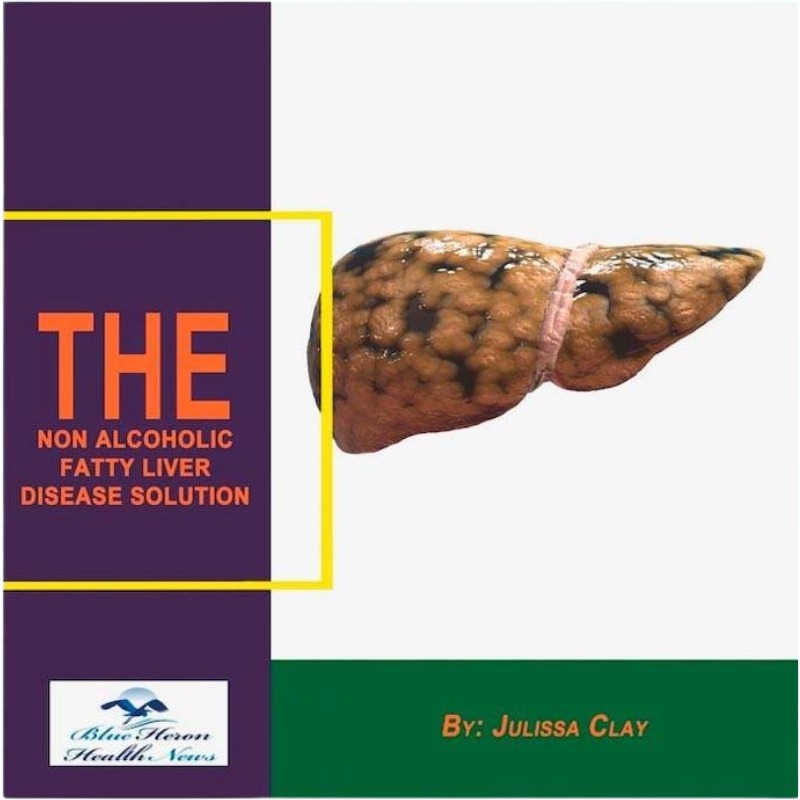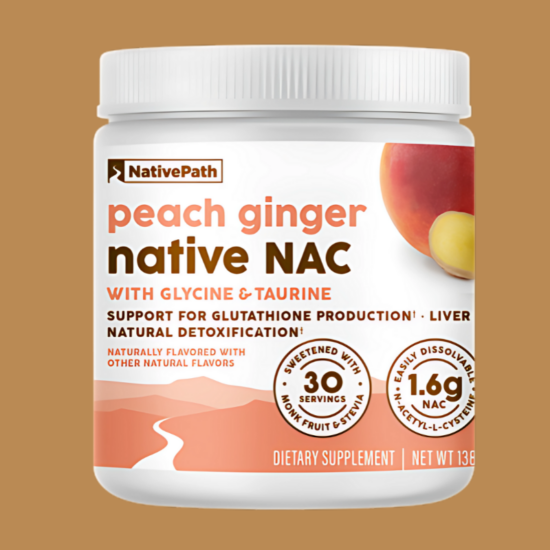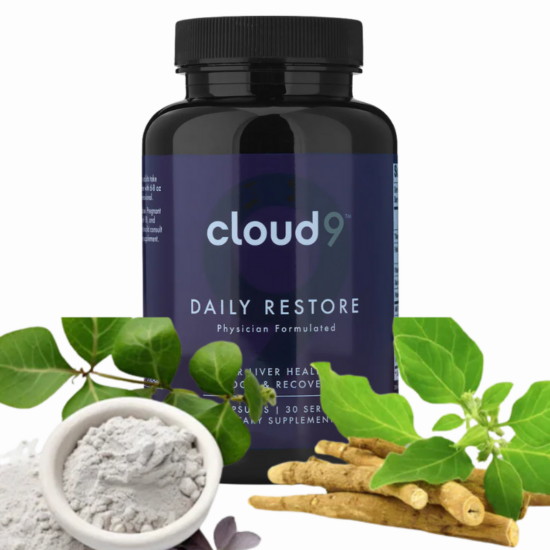$49.00
Transform your health with our Non-Alcoholic Fatty Liver Disease Solution! This comprehensive program offers proven strategies to reverse fatty liver and promote overall wellness. Packed with expert guidance, delicious recipes, and lifestyle tips, it empowers you to make sustainable changes that enhance liver function. Experience increased energy, improved digestion, and a renewed sense of vitality. Designed for those seeking effective, natural solutions, this program is easy to follow and tailored to fit your lifestyle. Choose our Non-Alcoholic Fatty Liver Disease Solution and take the first step towards a healthier, happier you!
Description
Non-alcoholic fatty liver disease (NAFLD) is a prevalent condition affecting millions worldwide. Characterized by the buildup of fat in the liver, NAFLD can progress to more severe conditions such as non-alcoholic steatohepatitis (NASH), fibrosis, cirrhosis, and even liver failure. Given the limited pharmaceutical treatments available, lifestyle interventions remain the cornerstone of managing this condition. The Non-Alcoholic Fatty Liver Disease Solution claims to provide a comprehensive, natural framework for reversing NAFLD through diet, exercise, and lifestyle modifications. At MedClinRes.org, we conducted an in-depth review to analyze its methodology, efficacy, scientific grounding, and overall benefits for those seeking a holistic approach to liver health.
What Is the Non-Alcoholic Fatty Liver Disease Solution?
The Non-Alcoholic Fatty Liver Disease Solution is a digital program designed to help individuals manage and potentially reverse NAFLD naturally. Developed by Julissa Clay, a health researcher and advocate for natural healing methods, the program focuses on eliminating the root causes of fatty liver through targeted lifestyle adjustments. It emphasizes three pillars:
- Dietary Modifications: A nutrient-dense, liver-friendly diet to reduce fat accumulation.
- Physical Activity: Exercises aimed at improving liver function and overall metabolic health.
- Lifestyle Changes: Stress management, sleep optimization, and detoxification strategies.
The program’s promise is to equip users with actionable, science-backed tools to improve their liver health without relying on medications or invasive procedures.
Key Features of the Program
1. Dietary Recommendations
The cornerstone of the Non-Alcoholic Fatty Liver Disease Solution is its dietary approach, which includes:
- Anti-Inflammatory Foods: Emphasis on fruits, vegetables, whole grains, and healthy fats to reduce inflammation and oxidative stress.
- Liver-Cleansing Ingredients: Foods such as leafy greens, garlic, turmeric, and beets that support detoxification.
- Low Glycemic Index (GI) Options: To stabilize blood sugar levels and prevent insulin resistance, a key contributor to NAFLD.
- Avoidance of Processed Foods: Guidance to eliminate trans fats, added sugars, and refined carbohydrates that exacerbate liver fat accumulation.
2. Tailored Exercise Regimen
The program incorporates low-impact exercises designed to:
- Enhance blood flow and liver oxygenation.
- Promote weight loss, a critical factor in reducing liver fat.
- Improve overall metabolic health, reducing risks associated with diabetes and cardiovascular disease.
Recommended activities include walking, yoga, swimming, and strength training.
3. Stress Management and Lifestyle Optimization
Chronic stress can worsen liver inflammation and disrupt metabolic balance. The program’s stress management techniques include:
- Mindfulness Practices: Meditation and deep breathing exercises to lower cortisol levels.
- Sleep Hygiene: Strategies to improve sleep quality, which is essential for liver repair.
- Environmental Detoxification: Tips to reduce exposure to toxins in daily life, such as switching to natural cleaning products and avoiding processed foods.
Scientific Basis of the Non-Alcoholic Fatty Liver Disease Solution
The principles of the program align with established medical research on NAFLD management. While the program itself lacks direct clinical validation, its strategies are supported by robust scientific evidence:
Dietary Interventions
- Mediterranean Diet: Studies show that the Mediterranean diet, rich in monounsaturated fats and antioxidants, improves liver fat content and reduces inflammation.
- Nutrient Synergy: Vitamins C and E, found in many recommended foods, protect liver cells from oxidative damage.
Exercise Benefits
- Aerobic and Resistance Training: Research demonstrates that even moderate exercise can significantly reduce liver fat and improve insulin sensitivity.
- Fat Loss Mechanism: Physical activity promotes lipolysis, reducing visceral fat deposits that contribute to NAFLD.
Stress and Liver Health
- Cortisol and Inflammation: Chronic stress elevates cortisol, which can lead to increased fat storage in the liver.
- Sleep and Detoxification: Sleep is critical for the liver’s regenerative processes, with poor sleep linked to worsened NAFLD outcomes.
Benefits of the Non-Alcoholic Fatty Liver Disease Solution
1. Holistic and Natural
The program’s natural approach avoids reliance on medications, making it suitable for individuals seeking alternative solutions. By addressing multiple facets of health, it offers a comprehensive path to recovery.
2. Evidence-Based
The dietary and exercise recommendations align with scientific research, lending credibility to the program’s claims.
3. Practical and Accessible
The program’s step-by-step structure is user-friendly and adaptable to individual needs. The flexibility allows participants to progress at their own pace.
4. Long-Term Sustainability
By promoting lifestyle changes rather than quick fixes, the program fosters habits that support liver health over the long term.
5. Cost-Effective
Compared to medical treatments or consultations, the program is an affordable alternative for managing NAFLD.
Limitations of the Non-Alcoholic Fatty Liver Disease Solution
Despite its strengths, the program has some limitations:
1. Lack of Clinical Trials
While the strategies are evidence-based, the program itself has not been clinically tested, leaving room for variability in results.
2. Requires Commitment
Sustained lifestyle changes demand effort and discipline. Individuals seeking immediate results may find it challenging to adhere to the program.
3. Variability in Outcomes
The effectiveness of the program depends on factors such as the severity of NAFLD, individual adherence, and underlying health conditions.
4. Self-Guided Nature
The absence of personalized medical oversight may limit its suitability for individuals with complex health issues or advanced liver disease.
User Testimonials
Feedback from users has been largely positive, with many praising the program’s practicality and results. Here are some insights:
- Improved Liver Metrics: “After following the program for three months, my liver enzyme levels improved significantly.”
- Sustainable Lifestyle Changes: “The dietary recommendations are easy to follow, and I’ve noticed a difference in my energy levels and weight.”
- Challenges in Implementation: “It took time to adjust to the dietary changes, but the benefits have been worth it.”
Comparing the Non-Alcoholic Fatty Liver Disease Solution to Conventional Approaches
Medications
Pharmaceutical treatments, such as vitamin E supplements or insulin-sensitizing agents, are commonly prescribed but often come with side effects. The program offers a non-invasive alternative.
Bariatric Surgery
In severe cases, weight-loss surgery may be recommended. While effective, it is costly and carries surgical risks. The program’s natural approach avoids these drawbacks.
Traditional Diet Plans
Standard diets may lack the specificity required for NAFLD management. The program’s tailored recommendations fill this gap by focusing on liver-friendly foods.
Ethical Considerations
The program’s marketing emphasizes natural healing, which can appeal to individuals wary of traditional medicine. However, users should be informed that it is not a substitute for medical advice or treatment. Consulting a healthcare provider before starting the program is crucial, especially for individuals with advanced liver disease or coexisting conditions.
Conclusion
The Non-Alcoholic Fatty Liver Disease Solution offers a promising pathway for individuals seeking a holistic approach to managing and potentially reversing NAFLD. Its focus on dietary interventions, exercise, and lifestyle changes aligns with current scientific understanding of liver health. While the program requires effort and commitment, its potential benefits make it a valuable resource for those willing to embrace long-term changes.
From a medical and wellness perspective, this program represents an accessible, evidence-informed option for addressing the root causes of NAFLD. However, users should approach it as part of a broader strategy that includes regular medical monitoring and professional guidance.
For individuals ready to take proactive steps toward better liver health, the Non-Alcoholic Fatty Liver Disease Solution may serve as an effective tool to enhance overall well-being and prevent disease progression. With informed decision-making and consistent effort, it holds the potential to transform lives and restore vitality.




